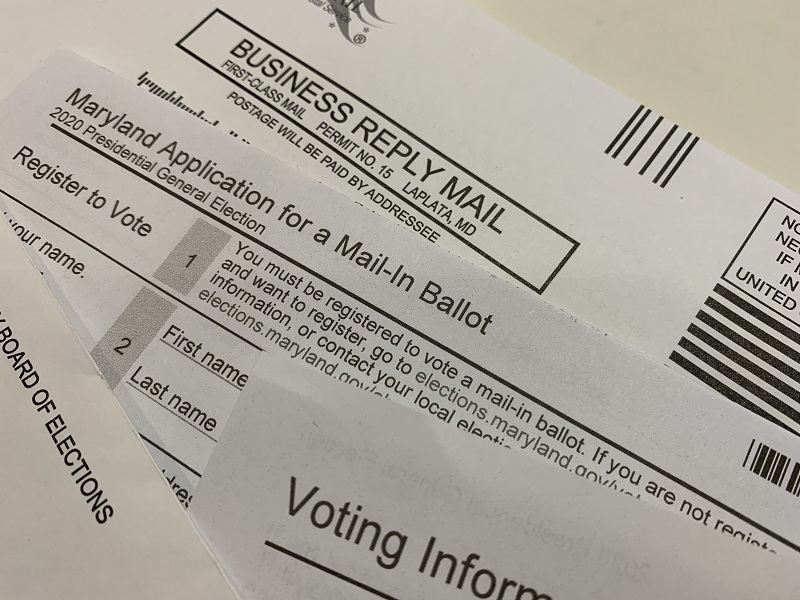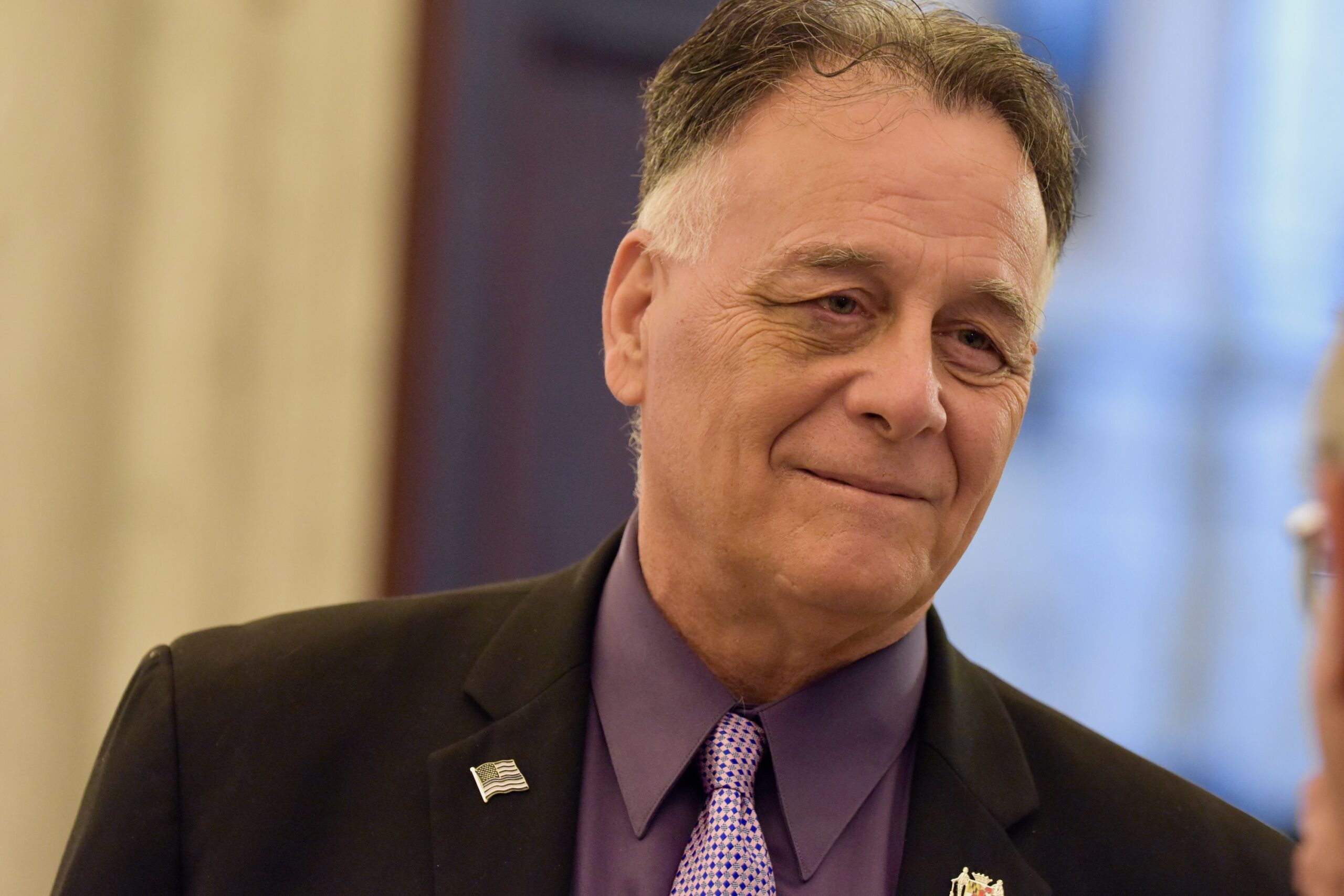Republican Lawmakers Again Introduce Voter ID, Signature Verification Bills

Republican state lawmakers announced legislation Thursday to require voter identification and signature verification, though those measures have repeatedly failed in the General Assembly.
Measures to require voters to show a form of identification before casting their ballots and to require election officials to verify signatures on mail-in ballot envelopes were also introduced by Republican lawmakers in the 2021 legislative session, but those bills did not advance in the majority Democratic General Assembly.
Legislators already have rejected some signature verification efforts in this session: Senate Minority Leader Bryan W. Simonaire (R-Anne Arundel) tried to add signature verification measures to an election bill earlier this month, but that amendment was voted down.
Mail-in ballot use surged during the unconventional 2020 election, and Maryland lawmakers moved last year to permanently expand access to mail-in ballots. They approved legislation in 2021, introduced by Del. Jheanelle K. Wilkins’ (D-Montgomery) and Sen. Benjamin F. Kramer (D-Montgomery), which sets up a permanent mail-in ballot list so voters wouldn’t have to apply before every election.
On Thursday, Simonaire and other Republican leaders from the House of Delegates and the Senate announced further attempts to add voter verification measures to state law. Those include:
Senate Bill 532, introduced by Sen. Justin D. Ready (R-Carroll), would require voters to show some form of identification before casting a ballot. Similar to a bill Ready filed last year, the legislation would allow voters to use a government-issued photo ID, bank statement, utility bill, government check, paycheck or “any other government document that shows the voter’s name and address and is dated within three months before the election,” according to the bill.
Civil rights advocates, including the American Civil Liberties Union, oppose voter ID laws because people of color and people with disabilities disproportionately lack ID and other documents that would be required to vote.
“We really just don’t want to see anything that makes it more difficult for these already marginalized communities to be able to come and vote,” Morgan Drayton, policy and engagement manager for the fair elections group Common Cause Maryland, said in an interview.
Senate Bill 738, introduced by Simonaire, would require the State Board of Elections to conduct a full audit of mail-in ballots if a sample audit of ballots showed that a threshold number of signatures on ballot envelopes did not match voters’ recorded signatures.
The bill is similar to the amendment that Simonaire tried to make to legislation sponsored by Sen. Cheryl C. Kagan (D-Montgomery) that would give voters a second chance to sign the oath on the ballot envelope. Maryland law currently requires ballots with an unsigned oath to be rejected.
Kagan and other Democrats have pushed back on signature verification measures. During a floor debate on Simonaire’s amendment earlier this month, Kagan said signatures change over time and that similar measures in other states disproportionately affect people of color and low-income voters.
Thursday, Simonaire characterized his bill as an added security measure for mail-in voting in Maryland.
“We’re not saying that there was widespread fraud in Maryland, but the point of the matter is we’ve changed our elections drastically with these mail-in ballots. We used to have absentee ballots where there were probably in the thousands of them. Now we’re talking millions of them, and we need to put the safeguards in place,” he said.
Drayton said mail-in voting is already highly secure in Maryland, and that there has been “virtually no fraud” in the state over the past 20 years.
“The risk of disenfranchisement of those eligible voters from vulnerable communities far outweighs evidence of voter fraud or widespread voter fraud in Maryland,” Drayton said.
She described voter ID and signature verification measures as “trying to solve a problem that doesn’t really exist.”
House Bill 963, introduced by Del. Haven N. Shoemaker Jr. (R-Carroll), would require election officials to verify signatures on all mail-in ballots. That bill would require local election boards to compare signatures on mail-in ballot envelopes with those in voter registration records and would allow them to use machines to electronically verify signatures.
The bill would require election boards throw out mail-in ballots where signatures can’t be verified but would allow voters to fill out a form to verify their signatures within two days of receiving the board’s notice that their ballot has been rejected.
Shoemaker said Thursday that the bill is similar to California’s signature verification process, which requires election officials to compare signatures on mail-in ballots to voters’ registration records. An exact signature match isn’t required under California’s bill. Shoemaker’s bill leaves most of the regulations around signature verification up to the State Board of Elections.
“California is not exactly the home of conservative thought,” Shoemaker said, adding that he hopes the bill receives bipartisan support.
House Bill 939, also from Shoemaker, would prohibit sending mail-in ballots to voters unless the voters requested them. Ballots were mailed to all registered primary voters in Maryland during the 2020 primary election, but for the general election, request forms were mailed and voters had to return them to get a mail-in ballot.
For the 2022 primary election, the State Board of Elections is mailing ballot request forms to voters.
And House Bill 1172, introduced by Del. William J. Wivell (R-Washington), would remove party affiliation from mail-in ballot envelopes — similar to a bill that received bipartisan support last year and passed the House of Delegates, but didn’t advance in the state Senate.




 Creative Commons Attribution
Creative Commons Attribution